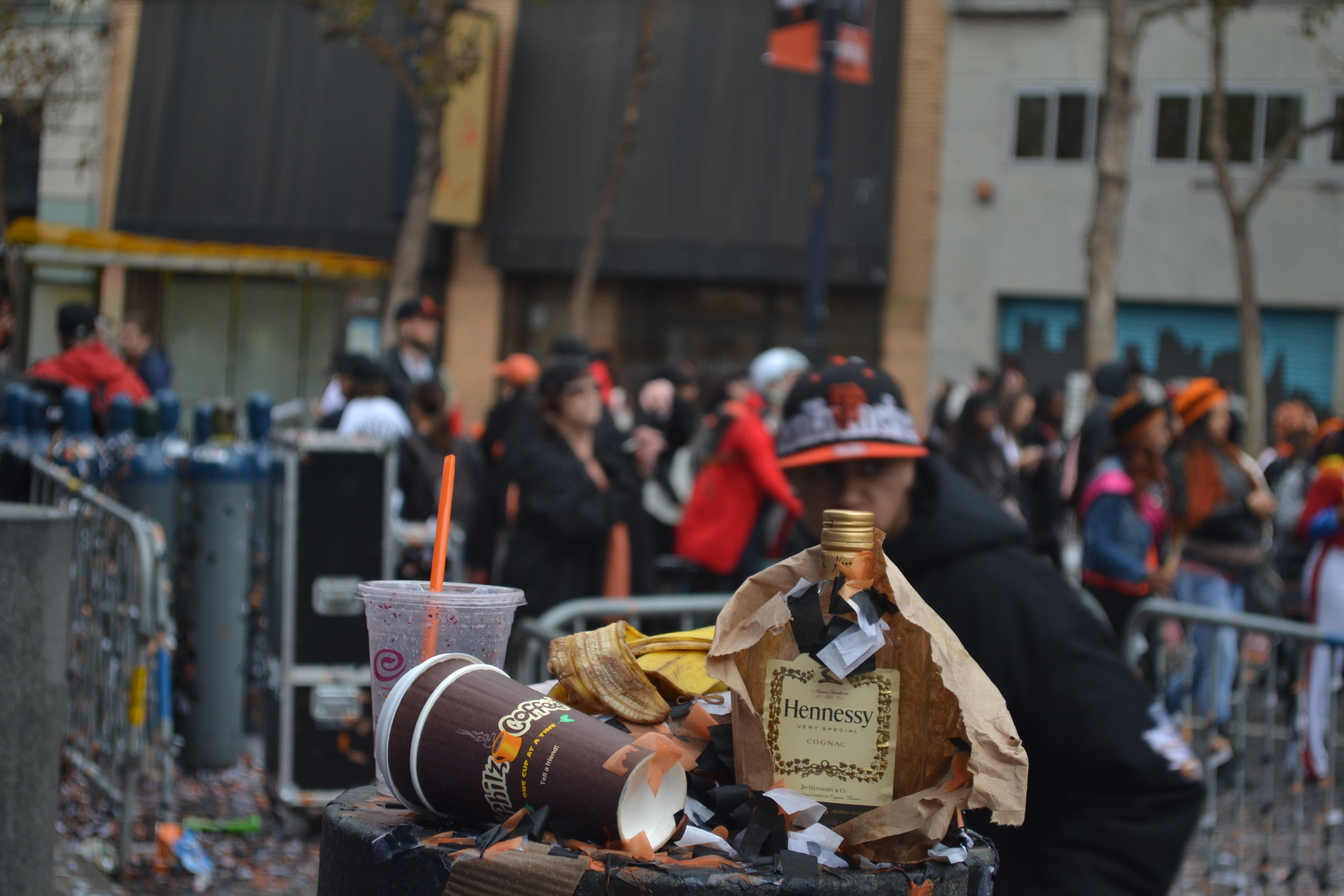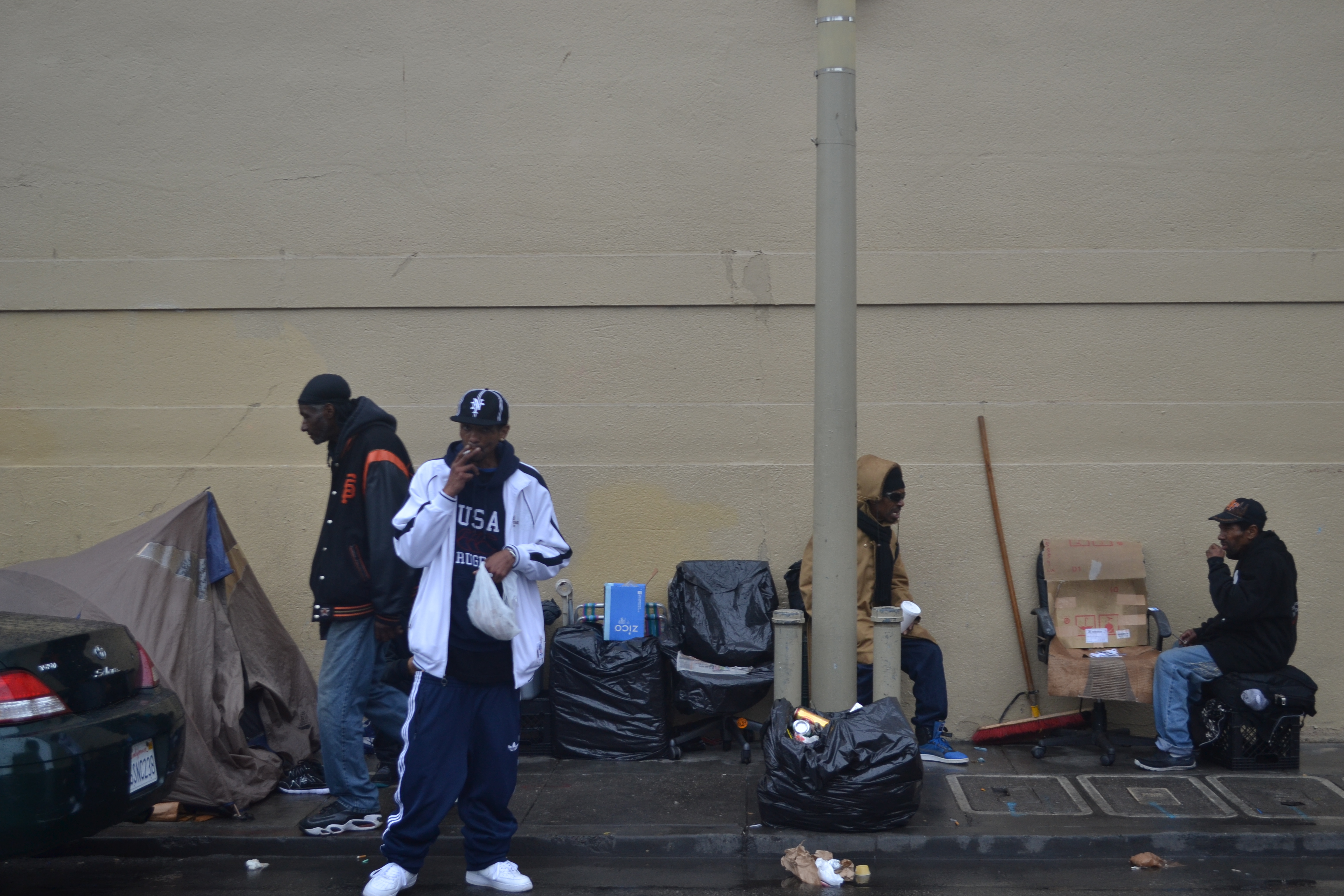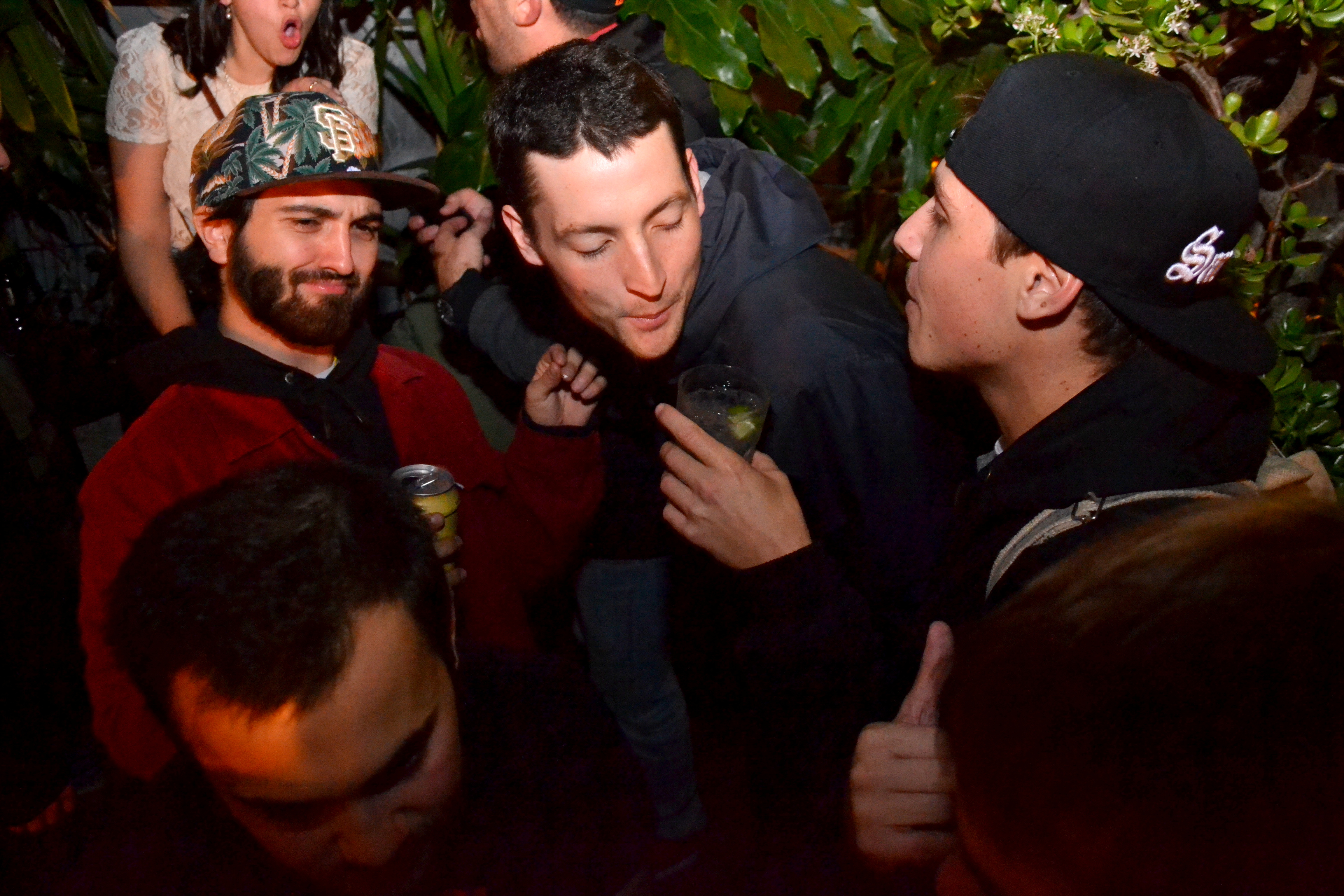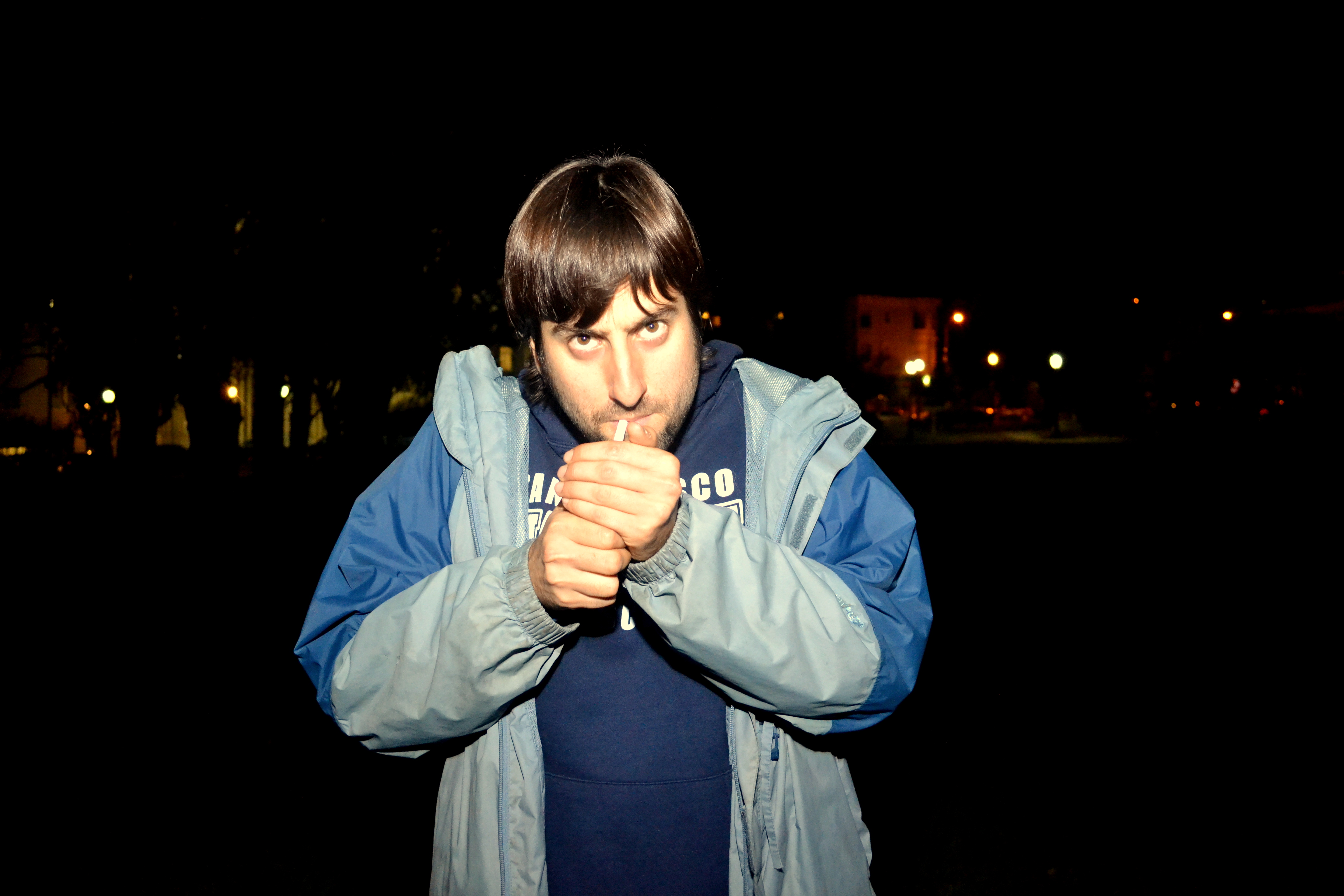By Christopher Michael Rojas Moreno
Fully Automated in America
I’ve been gone for 6 months. I walked through slums in Burma, slums in Cambodia, slums in India, even slums in Thailand. Not once did I feel in danger, or unwelcome. Poor people share what they have, and are happy to meet brown strangers from faraway lands. I played guitar for children in a slum in Mandalay, Myanmar, and they laughed and danced. When I was done, their father came out of his tent, and gave me an apple. He said to me, “I dont have very much, but what I have, I want to give you. Thank you for making my children dance.” I’ve never seen such compassion from anyone before, let alone anyone living in poverty. They love to share the things they enjoy listening to, dancing to, drinking, eating, you name it. If they love it, then they want you to have the chance to love it too. It doesnt matter that they dont have much, in fact, because they know how it feels to be hungry, they know how important food is, and they never want someone else to starve. People were nice. Without prejudice, without judgment or expectation, they simply were nice. It is bizarre to me that here, in the United States, the poorest people are often ill-tempered, careless with their words, and prone to crime. Why? If you come from a poor background in America, you still have so much opportunity laid bare before you. Even a kid from the ghetto has a chance to go to college. So why weren’t they all doing it? Why did people of color still make up a majority of the population in prisons and not in colleges? Didn’t they stand to gain the most from a college education?

This wasn’t the only thing that was absurd. All over the country there are shops where you can buy food for cheap. Shops that are always stocked with perfect produce, unbruised bananas, waxed, glossy shiny apples, bags of potato chips and bottles of soda that are cheaper than organic produce and bottles of water. Here, in the land of plenty, I do not see the the happy faces of the poor. I see the misery, and the cold-hearted cynicism of the working poor. The class that owns nothing, but works over 40 hours a week, and only has the bar as their “happy place”. Here, I see stores that are full of food. And just outside of their windows are starving homeless people. Men and women who freeze at night, who sleep in cardboard boxes propped up between shops. Only to be humiliated by police because someone wants their presence to be addressed, like they were just a minor scribble on a piece of paper that needed to be erased. Not fed. Not clothed. Not loved. Erased.
In a country where nobody knows what its like to starve or sleep on the street, people are completely inhumane to one another. It’s shocking. We have so much, and care nothing for our neighbors, for our homeless, for our impoverished communities. How far removed do you truly feel from the man or woman you see pushing a cart in the street? Do you feel any kind of connection? If not, then why? Are they not made of the same flesh and blood as yourself? Are they not prey to the same feelings of anxiety, depression, and loneliness that you suffer as well? Why do we feel so distant from our poor in America? It is almost as if they were a different species, similar to how whites treated blacks before the civil rights movement of the ’60s. In their eyes, blacks weren’t even human, therefore, it was alright to watch one get whipped in public. Or to turn the other way when one was toiling in the fields, sweating and bleeding to build the wealth this country would someday inherit.
My dear fellow Americans, we are today in a new world of prejudice. Where the poor are suffering, and the rich have taught the rest of us to do nothing for them, by instilling within us the fear that someday, we might become them. But my friends, we are already doomed to become them if we do nothing to unify. If we continue to allow the poor to suffer, in subjugation to the rich, then we shall dig our own graves. Yesterday, black was poor, and white was rich. Over time, those colors have bled into patterns on dollar bills. Today, we look the other way when a poor man begs in the street, how is this any different that when a slave tried to escape and was beaten in public? Today, as back then, those of us who could have helped, still, do nothing. Still, fear has gripped the masses. In the words of Martin Luther King Jr, “It was not the brutality of the police that hurt our movement, it was the inaction of the rest of America, that hurt us the most.”

How do you think the poor feel today?
Shootings happen regularly, the flag has been at half staff for three days now. That’s half a week, and the average American couldn’t give half a damn about the growing frequency of such attacks. It doesn’t effect them at all. Not until violence comes knocking on their front door, will the average American be stirred into action, and by then, it will be too late. Too far gone will the time for civil disobedience have flown by then. Today, it is the poor who are being waged war upon. It is a silent war, fought with paperwork, with tidy legislation, that seeks to make the means by which they survive disappear, like the overwhelming joy of youth that lies in your belly, fades away into the stern recognition of reality as you grow older. Politicians who have never struggled to make a living, who have never starved, never begged, never had to walk a mile to do anything now decide how the poor will survive. They make it illegal to sit or sleep on the sidewalk, knowing full well, that for the poor, this is all they have to sit or sleep upon. Officials, in suits made by the hands of foreign slaves, imported by companies that make millions off the labor of these poor folk in other countries, now post eviction notices on the homes of the working poor, the men and women who clean the halls at night, who serve the food in your favorite taqueria, or dim sum kitchen. Cities are now undergoing a revolution of population. The rich now want to live within their concrete borders, and they demand that the poor families who built these neighborhoods, who gave character to these alleys be removed, though, they should leave their culture behind, for the rich to enjoy for themselves. They say, “Please leave, for now your clothes are a blight, your coupons are obsolete, your way of life gives us a sneer, leave these cities, but leave behind your cheap food, your music, your holiday affairs” For the rich in this country, have no culture, save for what they can appropriate from what is readily available.
How can the rich call poverty a blight? Is it not a symptom of the system they participate in? Are they so blind, to be unaware that in order for them to have wealth, there must be those poor creatures who wander the streets collecting cans, recycling them for the few cents that they are worth? The rich have no compassion, they have tax write offs. The rich have no love, they have Alcohol. The rich have no culture. They have Imperialism. I do not understand how the rich can be so intolerant of some, yet proclaim that this era be the era of inclusion for others. Is it not completely hypocritical to declare that all are equal, but some are not as equal as the rest? Or are we witnessing the deception of capitalism evolve and transform itself to meet the expectations of a new generation. No longer will the masses tolerate homophobia. But the masses do not mind when the poor are evicted, arrested and abused. When our government declares that this is the epoch of a colorblind government, we must challenge this statement, and ask, is it truly colorblind? Or is it simply that now the government itself has grown so accustomed to the color of money, that now all it sees is the color green? So that Black women, and brown men are but little investments, taxes to be collected, and distributed into war time machinery, into soldiers and weapons, into invasions and the spread of “democracy”.
The middle class itself is a complete absurdity. They are neither rich, nor poor. However, they are complacent, comfortable, apathetic the to the plight of anyone, but their favorite characters on television. Homeless men and women give them no emotional stimulation. But plot twists and gruesome murders on TV fill their blood with excitement, and give them something interesting to talk about, something for them to escape from the monotony of their routine. They are unaware that within that routine, they generate the tax money, the wealth that gives this nation the power to wage war on poor people everywhere. Today, the masses, are complacent, and ignorant of their power, ignorant of what it means to unite, to be politically active, to be ALIVE!
In many ways, I wonder, is the average American dead inside? Are we all living, working and struggling under the assumption that the future will be brighter than it is today? Are we all praying that our retirement will be comfortable, and our pensions will be plentiful? When your body is too old to run, and too withered to fight back, is this the age when finally you can enjoy the wonders of life?
I walk the streets, and I see homeless men and women starving. I see wounds that are infected. Bruises and bumps that mark the homeless mans body. Then there is the stare that only a person of the streets posseses. The stare that is similar to a marine who has seen action on the frontlines in one of our nations many wars abroad. The stare that is empty. They do not beg, for they know in this America, in their America, there are no givers. There is no room for sympathy in the iron heart of an American. Only room for productivity, for progress for pride. These are the new American qualities. And what does a homeless man or women produce? Nothing to eyes of the middles class. What progress has the homeless man or woman made? None in the eyes of the rich. And what pride do the homeless have? None, so long as politicians continue to destroy the very means and methods by which the poor can survive. What the rich do not understand is that you cannot destroy the poor. You cannot obliterate them from the Earth, for they are the very foundation upon which your rich nations are built. They are the soil to your fertile economy. Their hands are the hands of former veterans, teachers, restaurant servers and janitors. The very people who oil the machinery of production that the rich and middle classes take pride in. Amassing such a grotesque amount of wealth, the rich and the middle class are sowing the seeds of their own destruction. Though it may not be a the hands of these poor folk, their destruction may come in perhaps a more sinister form. It may come as a destruction of life. Of freedom from fear, in exchange for fear itself.

Memoir of A Young Bartender
It’s never “your” bar, only the bar you get paid to tend. You are easily replaceable, and easily forgettable. The hardworking bartender is also known as the rookie bartender. He pours his heart and soul into every drink, he tastes every cocktail before serving it, and tries his hardest to make sure things are organized, and prepped for every one of his coworkers. Meanwhile, those coworkers ridicule him for being so naive, for trying so hard. He doesn’t know it yet, but soon, he’ll be outside with them, smoking cigarettes, talking shit, it’s just a matter of time until the service life wears him down.
It’s a game of attrition, and the human body is not equipped to outlast the bar. Eventually all those kegs catch up to you. When you’re sitting down on your day off watching a movie, and suddenly you feel a stinging sensation in your lower back. That’s not lower back pain, that’s reality slowly chewing into your motivation. You go home, exhausted, beaten, sore and covered in liquor, too tired to shower, too tired to give a damn. You stay awake in bed asking yourself, “What happened to my passion?” Here’s what happened to your passion, rookie. You romanticized a shit job into a glorious past time. Now reality is knocking on the door, and guess what? She wants the rent. Listen up reader, this here is the story of a boy who was so good at bullshitting, it got him a job at almost every bar in San Francisco.
Every busy bar needs a barback. The man or woman who keeps things clean, keeps the glass organized, and scrubs away the filthy things that we project when we lose our sense of moderation. That barback is the one who quickly learns, smiling prevents the gag reflex, complaining gets you nowhere, and never say no to a shot.
Barbacking is a rite of passage that everyone in the industry has respect for. They are the unseen, unknown sailors that keeps the ship sailing smoothly through the night. The bartender is the facade, the smile, the personality that customers wish they had. Ironically he’s putting on a show. He flips bottles, and serves until everyone’s satisfied, which is never. Meanwhile, the barback is picking broken glass off the floor, amidst a cacophony of lights and smoke that create a sense of chaotic excitement. If you’re a customer, this all adds up to a sense of “I’m really happy I spent $10 to get in here”. While you’re texting your tinder date instructions on how to find you amidst the crowd of people who look just like you, the barback sweeps on by. He slips between drunk couples who are just discovering foreplay on the dance floor, slides around the over compensating thugs who menacingly bob their heads to the beat, drink in one hand, crotch in the other. A barback quickly learns that in order to do your job well, you’ve got to be like the Batman. In, out, unseen, unheard, the only proof that you were ever there is the fact that the beer is still flowing from the tap and the glass is off the floor. The barback is the bars super hero, the only difference is we don’t get costumes, or gadgets. We get a high tolerance to disgusting things, a high tolerance to alcohol, the burning fuel for the burning fire that motivates us to become bartenders.

Over time, what turns the rookie into the jaded vet, is what we call “the burnout.” The part where you lose sight of the shore, and drift along, no goals, no plans, no end in sight. Whether it’s the constant 110% needed to perform the job, the 25% you get from the jaded vets around you, or the endless demands from management, everyone has their own version of the burnout. Some have one burnout and leave the industry altogether, others manage to come back from the brink and return to the grind. No matter what you do, your first burnout will leave a lesson seared into the feeble pulse of your heart. This is not what you want to do for the rest of your life. It just isn’t. I’ve seen bartenders throw bottles at hostesses, bartenders punch holes in walls, or even take steak knives to boxes of fruit. Tell me, what’s more bizarre: a seemingly normal person stabbing a box of lemons with a steak knife, or the vet watching him remaining completely unfazed because he’s been there before?
The bar is hungry, it wants you to lose your temper, so it can find it and feed on it like hyenas on a carcass in the Serengeti. The Bar will blow your ashes into a blazing tempest, lurking in between burning trees while waiting for your coworkers to reach their own burnouts. It’s a silent jaguar that stalks your every movement, waiting for that Friday night slam at 1:30 am, when your knees are giving out and your hands are numb from the pain of getting lime juice in the little nicks that just won’t go away. That’s when she pounces. When she rips the heart out of your work. That’s when a Sidecar becomes a fuck you. When the idea of muddling anything makes you want to kick the bucket into the face of the customer who ordered it, then crawl into a hole and die. When people ordering simple drinks like vodka crans, and whiskey cokes become your favorite faces of the night, it doesn’t even matter if they tip or not, you just want the tide to fade out, you want the sun to break the horizon already and for these night crawlers to go home, drunk or not, you want it to stop. This is the breaking point. This is when you become a bartender.
There it begins, the bartending career has lost its glamour, its bright and shiny appeal. Suddenly, the bad habits, the late nights, and the constant consumption of contraband and cocktails catches up to you. Mornings are only blurs until the first mimosa, until you finally come to your senses, and by then you’re 2 screwdrivers deep, and it’s 3pm. This is the jading period. By now the bar has you hooked, you need the fix, the flow of cash tips. Those become your tickets to a night of forgetting your previous shift. It becomes a cycle, day after day, night after night. Your nose never operates the same, you mix liquors like you’re mixing paint. The days off are spent in hibernation. You exist in only two places. At home, or behind the bar. By now, that hardworking barback has been long dead. The motivation to start every shift early, to prep with precision is lost. This is what corporate bars do to their hardest working employees. A barback may have a dream that keeps him or her going, that keeps their eyes full of hope, but that manager only wants to see the bottom line get bigger. Here is where you need to find the shore. When you need to start asking yourself the questions you were running away from in the first place. Why am I doing this? What do I want to achieve?

Along the road, there are men and women who recognize the stages of a young bartender. They can discern the young hopefuls from the jaded vets. The up and comers versus the going-nowheres. There was once a bartender who worked behind the same bar for 12 years. Did he develop any talents? Yes, he learned to flip a bottle from the well onto the back of his hand. Did this help him pour drinks any faster? No. Did he care? No. Was he a team player? No. These are the kinds of people that will bring down an aspiring bartender. The ones who are so jaded, they don’t even know what they’re doing when the clock in. They’re just going through the motions. When your passions are reduced to redundant activities, that neither challenge, nor excite you, then, your life, loses its color, its vibrant, enthusiastic flair.
The work itself isn’t the only treacherous thing behind the bar. Love is just as dangerous as the poisons we pour. learn to fall in love the same way you enjoy a good liquor; do it in moderation. That’s all I’m going to say about it this time. Until next time reader.
-Brahma the (former) Bartender



Recent Comments